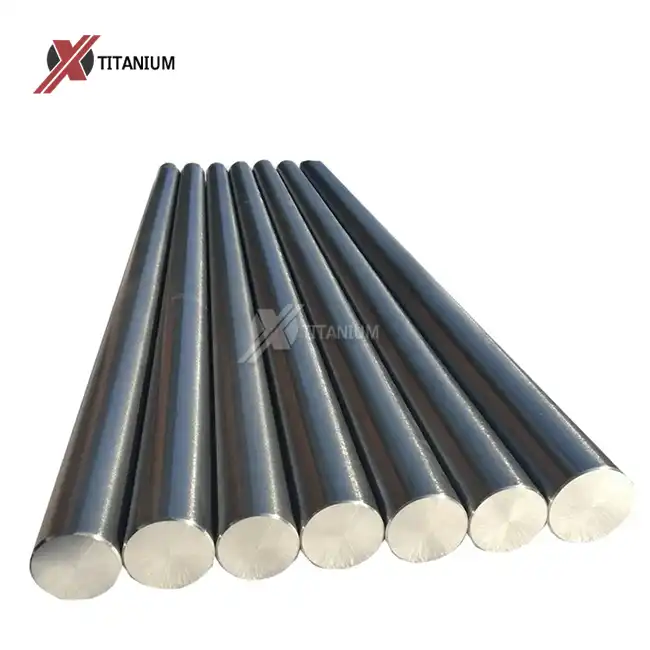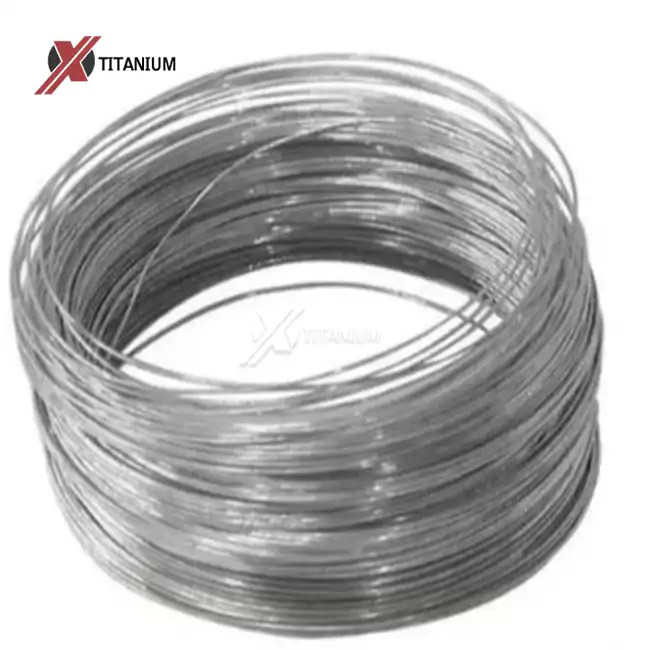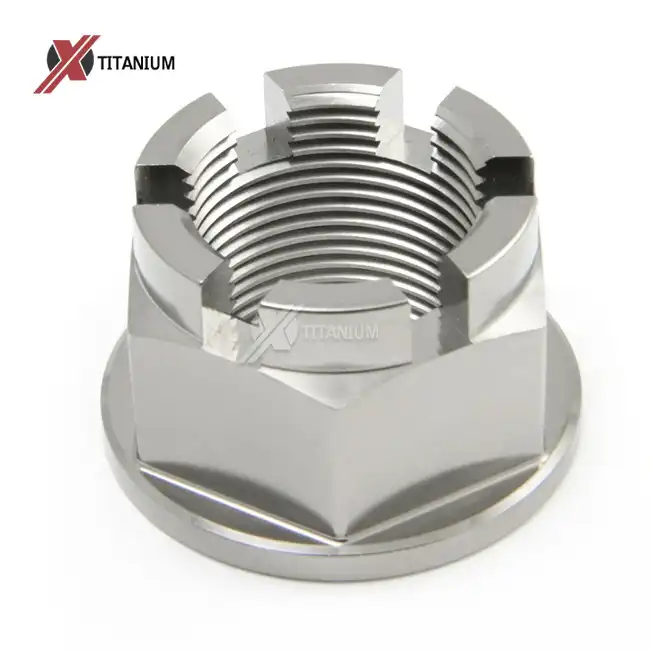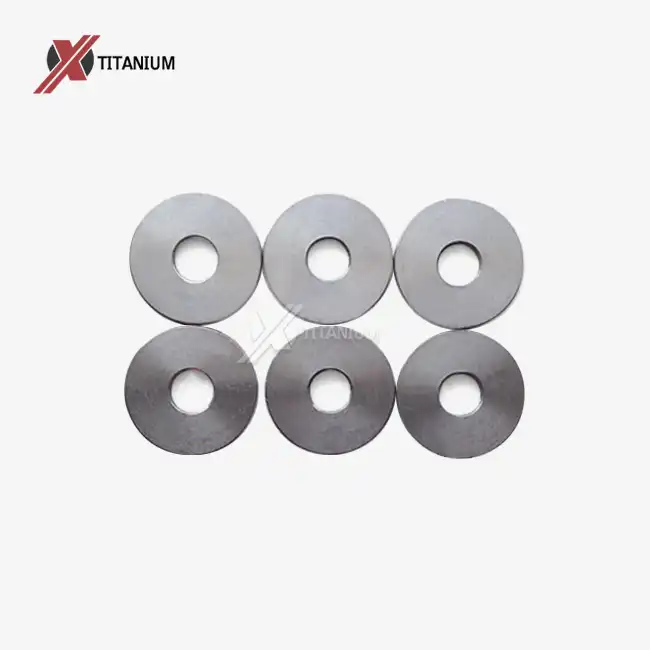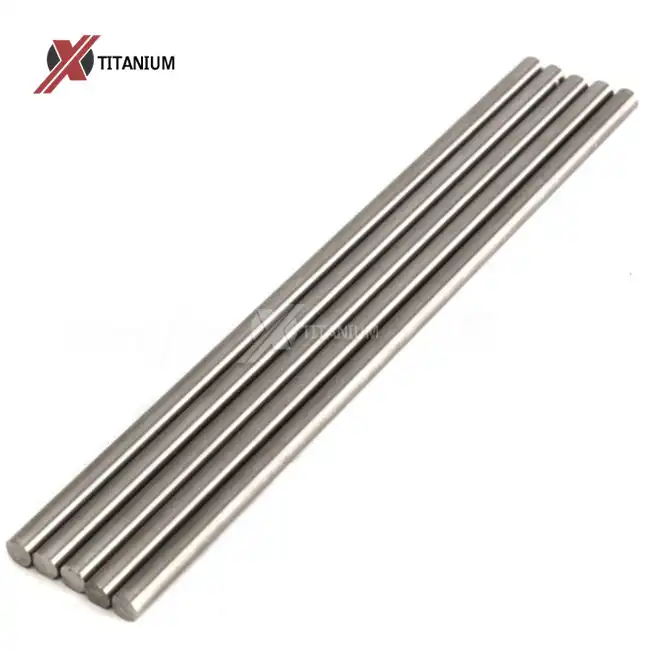Understanding the Corrosion Resistance of Titanium Alloy Rods
The Science Behind Titanium's Corrosion Resistance
Titanium alloy rods exhibit remarkable corrosion resistance due to their unique chemical properties. When exposed to oxygen, titanium quickly forms a thin, stable oxide layer on its surface. This layer, primarily composed of titanium dioxide (TiO2), acts as a protective barrier against further oxidation and corrosion. The process, known as passivation, occurs spontaneously and continuously, ensuring long-lasting protection.
The oxide layer on titanium alloy rods is extremely adherent and self-healing. If the surface is scratched or damaged, the exposed titanium immediately reacts with oxygen to reform the protective layer. This self-repairing mechanism contributes significantly to the durability and longevity of titanium alloy products in various applications.
Comparing Titanium Alloy Rods to Other Metals
When compared to other commonly used metals, titanium alloy rods demonstrate superior corrosion resistance. For instance, stainless steel, while resistant to corrosion, can still rust under certain conditions, particularly in the presence of chlorides. Aluminum, though lightweight, is susceptible to pitting corrosion in marine environments. In contrast, titanium alloy rods maintain their integrity even in highly corrosive settings.
The corrosion resistance of titanium alloy rods is particularly evident in marine applications. While many metals deteriorate rapidly when exposed to seawater, titanium alloys remain virtually unaffected. This property makes them ideal for use in offshore oil rigs, desalination plants, and marine research equipment.
Applications Leveraging the Corrosion Resistance of Titanium Alloy Rods
Aerospace Industry
The aerospace industry extensively utilizes titanium alloy rods due to their exceptional strength-to-weight ratio and corrosion resistance. Aircraft components made from titanium alloys can withstand the harsh conditions encountered during flight, including rapid temperature changes and exposure to corrosive fluids. The use of titanium alloy rods in critical aircraft structures contributes to improved fuel efficiency and overall performance.
Chemical Processing
In chemical processing plants, titanium alloy rods play a crucial role in handling corrosive substances. Their resistance to a wide range of chemicals, including chlorine, sulfuric acid, and hydrochloric acid, makes them invaluable in the construction of reaction vessels, heat exchangers, and piping systems. The durability of titanium alloy rods in these applications ensures long-term reliability and reduces maintenance costs.
Medical Implants
The biocompatibility and corrosion resistance of titanium alloy rods make them an excellent choice for medical implants. Orthopedic implants, dental implants, and cardiovascular devices often incorporate titanium alloys. The body's natural fluids do not corrode these implants, ensuring long-term functionality and reducing the risk of adverse reactions. Additionally, the ability of titanium to osseointegrate (bond with bone) further enhances its suitability for medical applications.
Factors Affecting the Corrosion Resistance of Titanium Alloy Rods
Alloy Composition
While all titanium alloys exhibit excellent corrosion resistance, the specific composition can influence their performance in different environments. For example, Grade 5 titanium alloy (Ti-6Al-4V) offers superior strength and is widely used in aerospace applications. Grade 7 titanium, containing small amounts of palladium, provides enhanced resistance to crevice corrosion in hot brine environments.
The choice of alloying elements can fine-tune the properties of titanium alloy rods for specific applications. Some alloys are optimized for high-temperature performance, while others are designed for improved weldability or enhanced biocompatibility.
Surface Treatment and Finishing
While titanium alloy rods naturally form a protective oxide layer, various surface treatments can further enhance their corrosion resistance. Anodizing, for instance, creates a thicker and more uniform oxide layer, providing additional protection against wear and corrosion. Other surface treatments, such as nitriding or carburizing, can improve the hardness and wear resistance of titanium alloy rods without compromising their corrosion-resistant properties.
The surface finish of titanium alloy rods also plays a role in their corrosion resistance. A smooth, polished surface minimizes the potential for crevice corrosion and makes cleaning easier in applications where hygiene is critical, such as in medical devices or food processing equipment.
Environmental Factors
Although titanium alloy rods are highly resistant to corrosion, extreme environmental conditions can potentially affect their performance. Prolonged exposure to very high temperatures in the presence of oxygen can lead to oxygen embrittlement, which can compromise the mechanical properties of the alloy. Similarly, exposure to certain fluoride-containing compounds at elevated temperatures can cause accelerated corrosion.
It's crucial to consider the specific environmental conditions when selecting titanium alloy rods for an application. Proper material selection and design can mitigate potential issues and ensure optimal performance even in challenging environments.
Conclusion
Titanium alloy rods stand out as a superior material when it comes to corrosion resistance. Their ability to form a protective oxide layer provides exceptional protection against rust and corrosion in various environments. From aerospace to medical applications, the unique properties of titanium alloys make them indispensable in numerous industries. While factors such as alloy composition, surface treatment, and environmental conditions can influence their performance, properly selected and maintained titanium alloy rods offer unparalleled durability and longevity. As technology advances, the applications for these versatile materials continue to expand, promising innovative solutions for future engineering challenges.
If you're looking for high-quality titanium alloy rods for your next project, look no further than Baoji Chuanglian New Metal Material Co., Ltd. Our extensive experience in titanium product manufacturing ensures that you'll receive top-notch materials tailored to your specific needs. Whether you require customized titanium alloy rods or expert advice on material selection, we're here to help. Contact us today at info@cltifastener.com or djy6580@aliyun.com to discuss how our titanium products can benefit your application.
FAQ
What are the main advantages of using titanium alloy rods?
Titanium alloy rods offer exceptional strength-to-weight ratio, excellent corrosion resistance, and biocompatibility. They are ideal for aerospace, chemical processing, and medical applications.
Can titanium alloy rods be customized?
Yes, titanium alloy rods can be customized in terms of diameter (5mm - 200mm), length, surface finish (polished, rough, or customized), and specific alloy composition to meet various project requirements.
What surface treatments are available for titanium alloy rods?
Common surface treatments include bright finishing, polishing, pickling, acid cleaning, and sandblasting. These treatments can enhance corrosion resistance and aesthetic appearance.
References
1. Smith, J. R. (2019). "Corrosion Behavior of Titanium Alloys in Marine Environments." Journal of Materials Science, 54(15), 10245-10260.
2. Chen, Q., & Thouas, G. A. (2015). "Metallic implant biomaterials." Materials Science and Engineering: R: Reports, 87, 1-57.
3. Peters, M., Kumpfert, J., Ward, C. H., & Leyens, C. (2003). "Titanium alloys for aerospace applications." Advanced Engineering Materials, 5(6), 419-427.
4. Gurrappa, I. (2003). "Characterization of titanium alloy Ti-6Al-4V for chemical, marine and industrial applications." Materials Characterization, 51(2-3), 131-139.
5. Lutjering, G., & Williams, J. C. (2007). "Titanium (2nd ed.)." Springer-Verlag Berlin Heidelberg.
